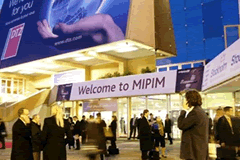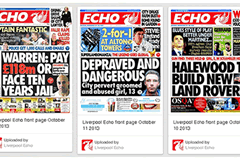Boris Johnson evoked memories of Gordon Gekko, the character from the iconic nineties movie ‘Wall Street’ in his address to the Centre for Policy Studies this week. Delivering the annual Margaret Thatcher lecture, the London mayor called for the Gordon Gekko’s of London to display their greed to promote economic growth.
Perhaps Boris has forgotten that in the award winning Oliver Stone film Gekko, who was superbly portrayed by Michael Douglas, ends up being prosecuted for fraud!
Nonetheless, the essence of Johnson’s assertion is that inequality is essential to fostering “the spirit of envy” and hailed greed as a “valuable spur to economic activity.”
If that is true then I’m afraid I find it more than a little depressing. If all that motivates people to work hard is personal gain and financial reward, then we as a nation are knackered.
At the Downtown Liverpool annual business conference last week, the keynote speaker was Andrew Rosenfeld.
Andrew sold his real estate business for £600m in 2004. He told delegates how he had built the business through blood, sweat and tears, and that he was immensely proud of the fact that his efforts had enabled him to provide financial wealth and security for him and his family.
Since 2004, Rosenfeld has led the most successful children’s charity appeal in the UK, working on the NSPCC’s Full Stop campaign and raising more than £200m. He has also started a telecoms business that donates a significant chunk of any profits made to not for profit organisations.
Rosenfeld is an entrepreneur through to his very finger tips. But is he greedy? I would suggest not, and having earned his fortune he has gone on to actively find ways of helping others.
It is this type of entrepreneurial spirit that we should be celebrating and encouraging. I don’t think the term ‘greed’ represents what drives most hard working business owners in this country – certainly not those who I have the privilege of knowing and working with.
Providing working opportunities and good careers for people; offering young people a chance in the workplace; contributing to the local economy; being a good role model for their peers and their children; building a business to be proud of and self esteem, all figure much higher on their agenda than ‘greed’.
Of course, we have to turn a profit. The bigger that profit the better. We all probably dream of selling a business for £600m one day. That is aspirational and ambitious rather than greedy in my opinion. But what drives you to get there should not be greed unless you are a bit of a tosser.
If he is to fulfil his ambition of being Prime Minister one day, Boris will need to tame his narrative. Being the amusing oaf and entertaining London’s chattering classes with swipes at those with low IQ’s, whilst bigging up the unacceptable face of capitalism may win him plaudits from Right Wing Tory backwoodsmen and some in the South. But it is an approach that is likely to alienate many outside of the Southern belt, or put another way, the parts of the country that the Tories need to win over if they are to secure a parliamentary majority.
To use another famous Wall Street line, Johnson will fail to ‘bag the elephant’ if he can’t learn to temper his language and distinguish what he is saying from Thatcher’s assertion that ‘there is no such thing as society’.







